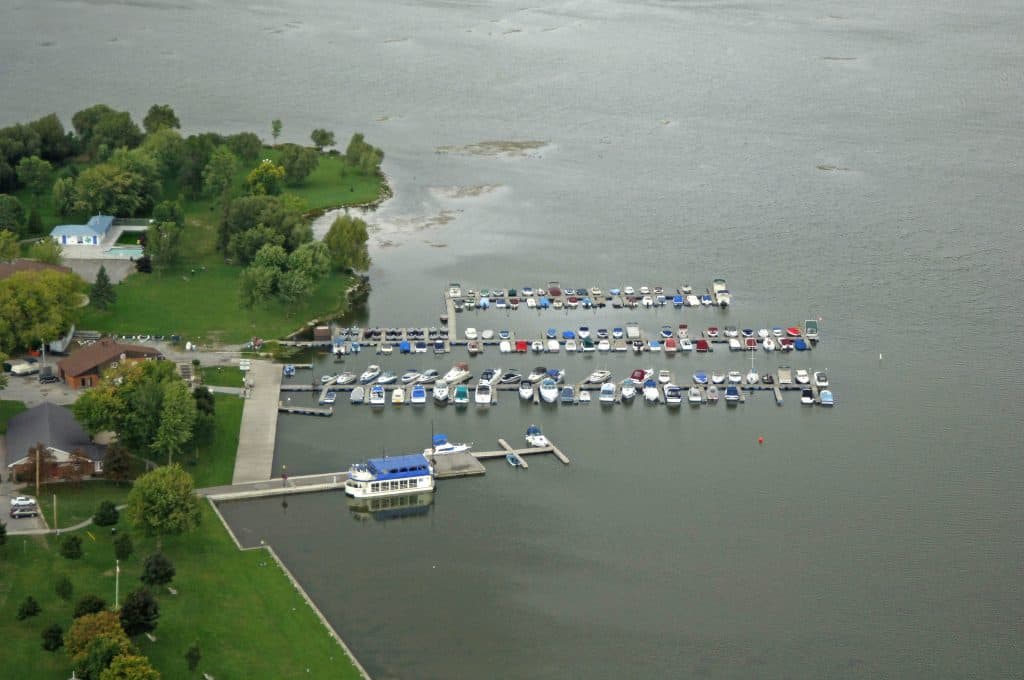Rising costs sink Lake Scugog Enhancement Project
Published December 20, 2024 at 4:48 pm

A massive environmental project eight years in the making is off the table after the price tag for the Lake Scugog Enhancement Project ballooned from an estimated $2 million to more than $8 million “with no final cost certainty in sight.”
Scugog Council considered a confidential staff report regarding options for the future of the Lake Scugog Enhancement Project earlier this month and unanimously adopted a motion to not proceed with the project, which would see the creation of an engineered wetland on the lake and the dredging of Port Perry Bay.
Township staff are now being tasked with finding an alternative solution to improve the water quality and health of Lake Scugog, a shallow body of water highly susceptible to environmental changes.
The main concerns from council, according to Mayor Wilma Wotten, were the increasing costs to the township and the community and the “unpredictable” financial and engineering risks associated with the project.
“The lack of clarity on the risks associated with building on the lakebed, the lack of appropriate permits with no clear timeline for securing them, and the need to secure access to additional lands substantially heightens the risk and likelihood of further cost escalation,” she said while emphasizing council remains committed to improving the water quality of Lake Scugog in a “fiscally responsible manner.”
“It is time for the township to consider other options.”
Staff is expected prepare a report to council on the cost and feasibility of an expanded Baagwating Park Stormwater Management Facility with improved water quality and aesthetics within the Scugog Township-owned property.
Staff were also directed to talk with funding partners and stakeholders in order to “reconcile and/or renegotiate funding agreements and outstanding financial obligations or commitments.”
Township staff performed a risk assessment review of the project leading up to the December 3 meeting, as well as a financial status update.
The project would have seen a 245-metre berm (with a trail and fishing platforms) constructed on the lake to contain the 3.68-acre wetland, which would include open and wetland channels, pools, basking logs, vegetated hummocks, nesting features, seed mixes and native shrubs.

Rendering of the berm that would contained the wetland to be created on Port Perry Bay
The bay would also have needed to be dredged to a depth of 1.8 metres to create the wetland, with nine dredge areas in total, and two oil and grit separators installed to treat stormwater discharge.
Construction costs for the project, a partnership between Scugog Lake Stewards, Kawartha Conservation, the township and Healthy Lake Scugog Steering Committee, had gone up to about $5 million as of two years ago and when the job went out to tender last fall the lowest bid came in at $6.74 million.
Total costs when council sat down in-camera to debate the project had now risen to an estimated $8.21 million, leaving a funding shortfall of more than $3 million and forcing Scugog Council to opt out of awarding the contract, leaving some of the already secured funding in jeopardy.
Rob Messervey, the president of Scugog Lake Stewards, said in a November 14 letter to Scugog CAO Ralph Walton that it was time to “step back” and complete a “structured, comprehensive risk assessment” of the major elements of the project before it is re-tendered.
“Clearly, current concerns are focused on project risks, liabilities and costs,” he said last month. “It is a complex project and given the lengthy process to date and with some current questions and concerns about project viability and risks, it seems appropriate timing to do a vigorous, focused reassessment on risk.”
In addition to preserving the health of the lake, the project was expected to increase fisheries productivity, enhance boating and other recreational activities and improve stormwater treatment capabilities.
An ongoing development on the lakeshore in Port Perry has also been a subject of concern for Messervey and his group, as well as the Mississaugas of Scugog Island First Nation – one of the key participants in the project – with a 500-600-unit housing development proposal raising issues of potential impacts on the health of Lake Scugog.
“Over the last few decades, urban development has disproportionately impacted water quality in the lake relative to agriculture, which is the dominant land-use in the watershed,” Messervey said.






